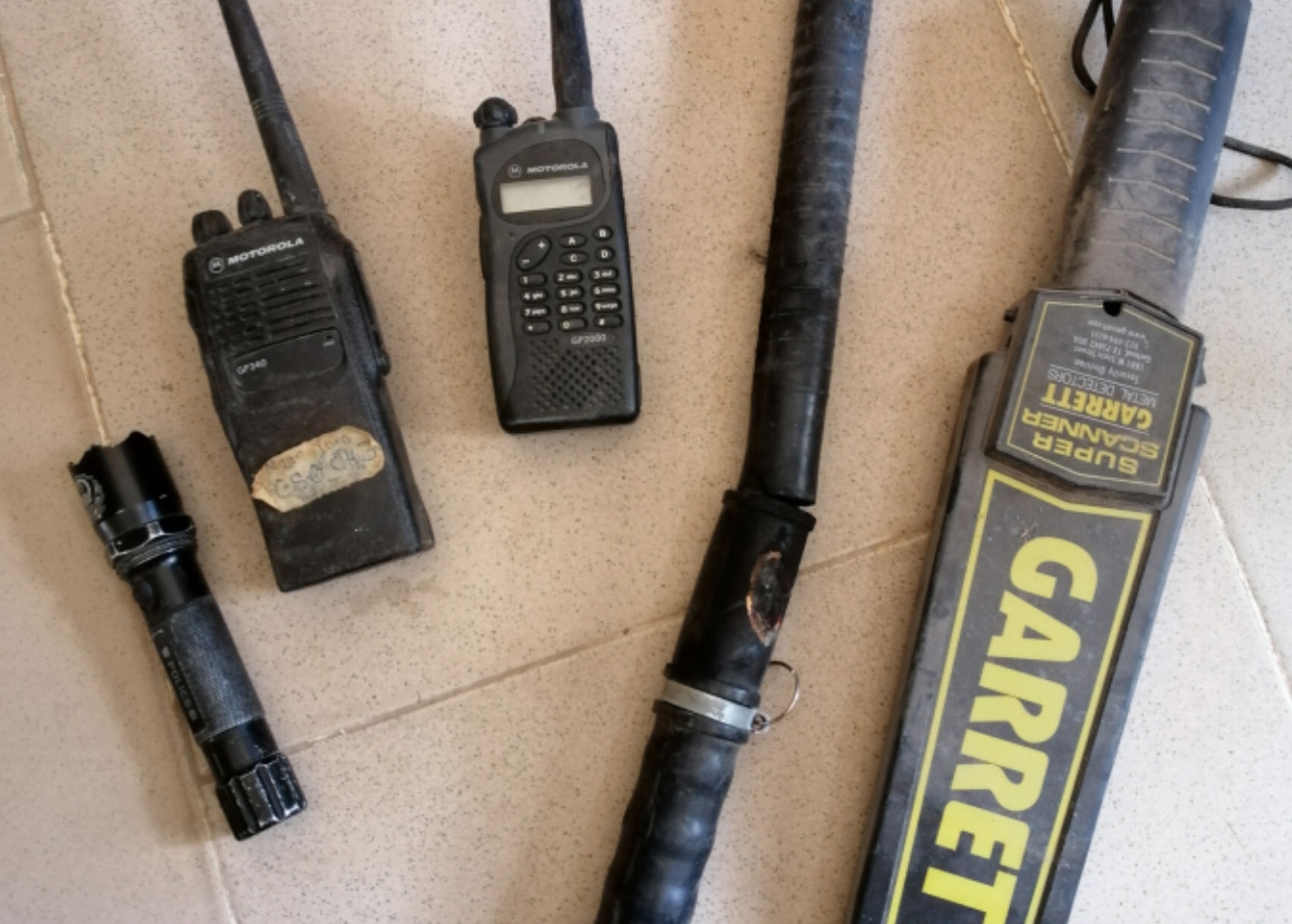
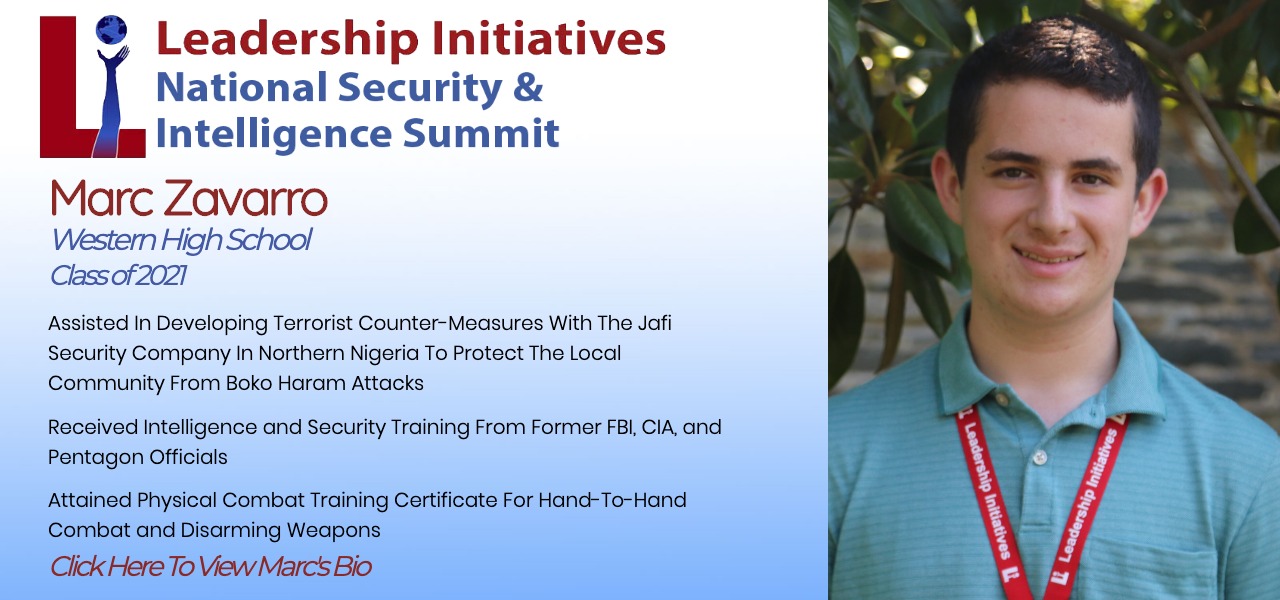

Bryson Soviero
St. Thomas Aquinas High School
Class of 2023

Developed counterterrorism measures with Yobe State University in Northern Nigeria to protect the local community from Boko Haram.
Received intelligence and security training from former top officials from the NSA, Pentagon, and U.S. Military.
Earned a grant from leading professionals at the Department of Defense, Air Force, and FBI to implement my security solution.
Read more about Bryson here.


Bryson Soviero is a rising junior at St. Thomas Aquinas High School in Ft. Lauderdale, Florida. For his sophomore year, he took all honors courses and one AP course at his high school.
Bryson is involved in several extracurricular activities inside and outside school. He plays the trumpet and french horn in the jazz and concert band at St. Thomas Aquinas. Bryson is also an avid sports fanatic and enjoys watching and play them. He is on the varsity golf team at his school and enjoys playing the game. Bryson also volunteers at his local course and teaches younger kids how to play golf. He also volunteers several times a year at the local homeless shelter in his town.
Bryson is extremely excited to be part of the National Security & Intelligence Internship. Being very passionate about community service, he is looking forward to helping make Yobe State University while learning how to make the United States and the world a safer place.
Read more about Bryson's achievements here.

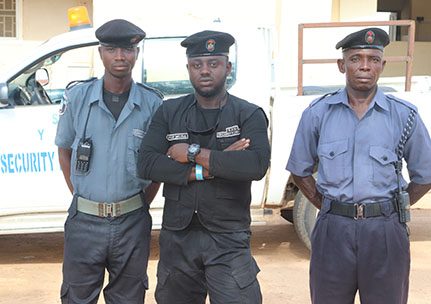

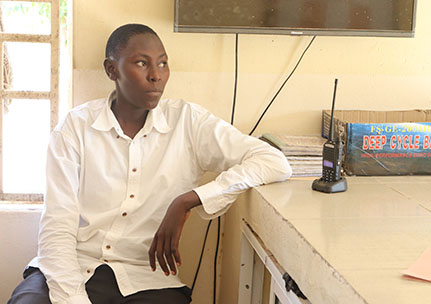



Worked With Counterterrorism Experts
My Security Proposal & Presentation
Consulted With A Security Firm In Northern Nigeria
My Security & Intelligence Training



My Security Proposal
Leadership Initiatives is a 501(c)(3) nonprofit organization that is dedicated to creating future leaders across the globe through experiential learning. In the National Security & Intelligence Internship, I worked directly with national security experts and trained in the latest intelligence tactics.
At the conclusion of the internship, I presented my security proposal to a panel of judges including Bill Stefan, Umar Muhammad, and Rusty Capps. They are the Deputy for Enterprise Management at the Department of Defense, the International Director of Leadership Initiatives Youth Development Programs, and former FBI special agent.
To address the lack of recognition for the guard force, I presented my solution to this panel of distinguished judges. I advocated for an armband uniform system so students could accurately identify who the security forces were. In addition to this, I developed a code word system so that the security forces could streamline their communication without risk of exposure to bandits and potential threats.
Read my proposal here.

To properly resolve the Yobe State University Security Department’s lack of formality for guards and a stable communication network, I had to outline every aspect of the problem and potential solution.
With the help of Rusty Capps, Umar Muhammad, and Ben Taylor, I was able to summarize my solution’s goals, risks, and potential implementation. Respectively, this variety of mentors have years of experience as a former FBI agent, Leadership Initiatives’ Youth Development Programs International Director, and White House Correspondent for Countering the Development of ISIS.
Boko Haram is a spreading insurgent group that is present in a number of Northern and Central African countries. Their philosophy of anti-Western education has put many educational centers at risk, including Yobe State University. In order to address these issues, security forces have had to step up their counterintelligence efforts and protective measures.
In order to complete this goal I wanted to maximize the ability of the security to protect the students and faculty at Yobe State University. Following the standards of other security forces around the world, I proposed an arm band uniform solution meant to provide a classification system for the security department. This will help instill trust in the security forces in the university.
See my research proposal presentation here.


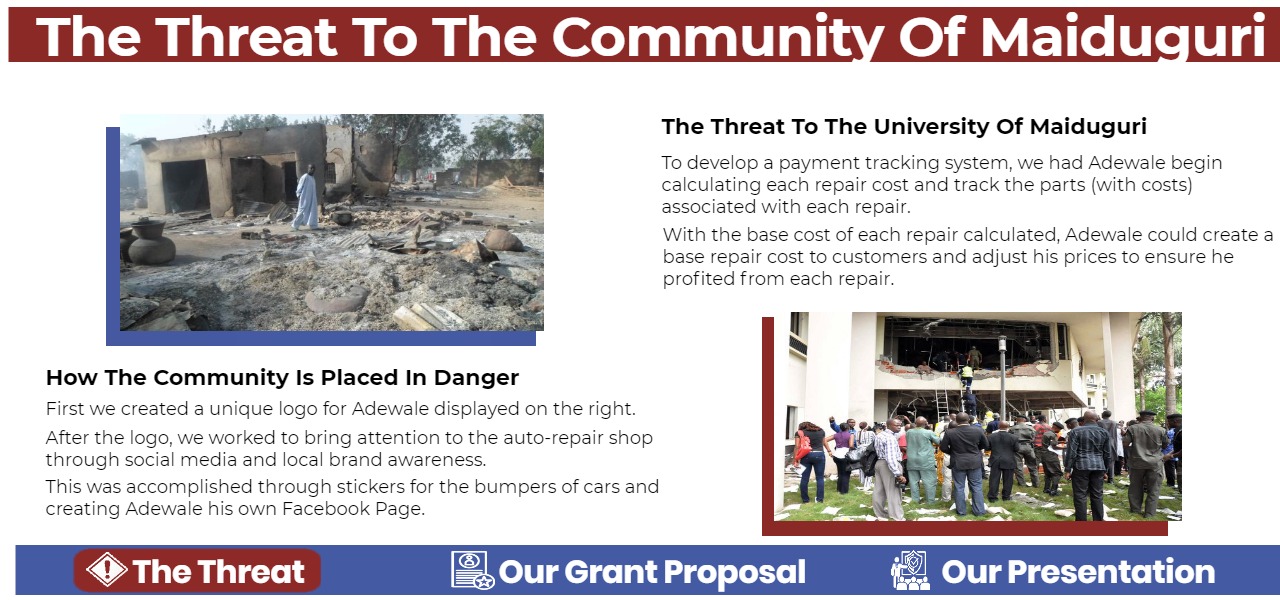
The Threat To The Community Of Yobe
The Threat To Yobe State University
Established by the Yobe State government in 2006, Yobe State University is one of Nigeria’s leading education institutions.
The university is seen as a safe refuge for its 12,000 students studying a vast array of subjects from agriculture to sociology.
The university’s unique role in the education of youth has made it a major target of Boko Haram.
How The Community Is Placed In Danger
Founded in Maiduguri, Boko Haram has been a consistent presence in northeastern Nigeria since the start of the millenia.
In the past five years, the radical sect has taken to attacking Yobe State University, resulting in over 150 civilian casualties.
Fortunately, military intervention and the university’s security department have mitigated some of the community's fear.


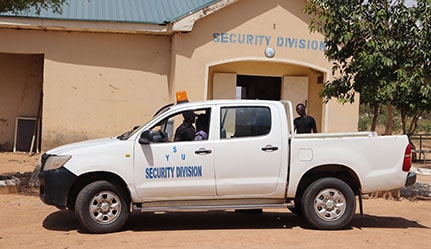
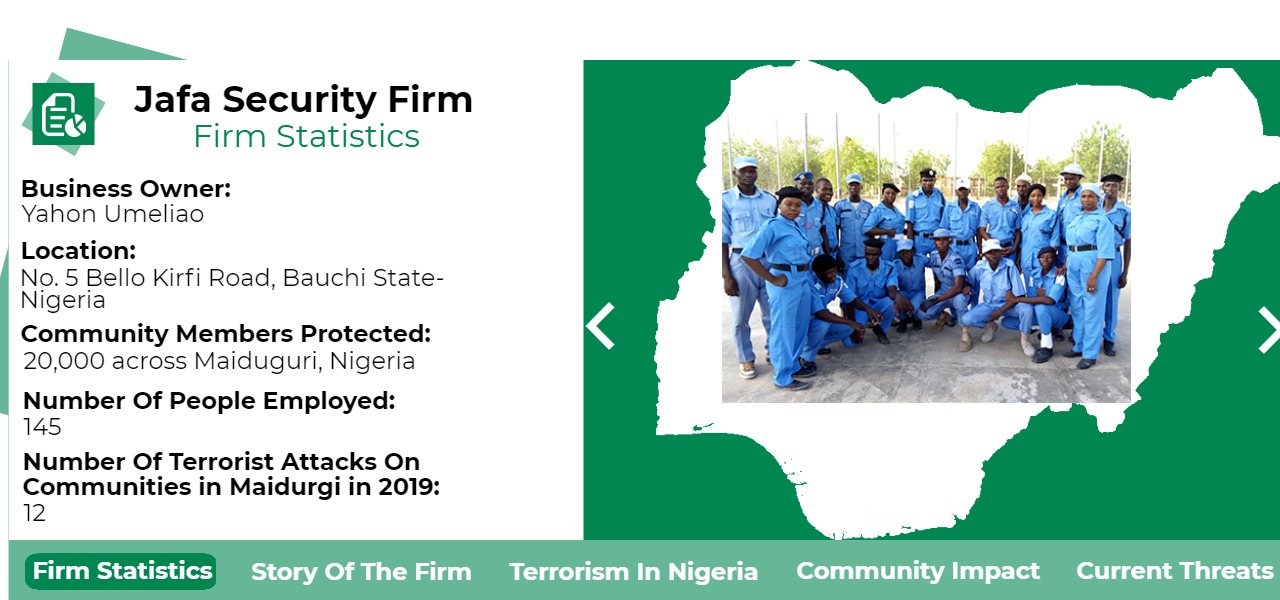

Yobe State Security
Firm Statistics



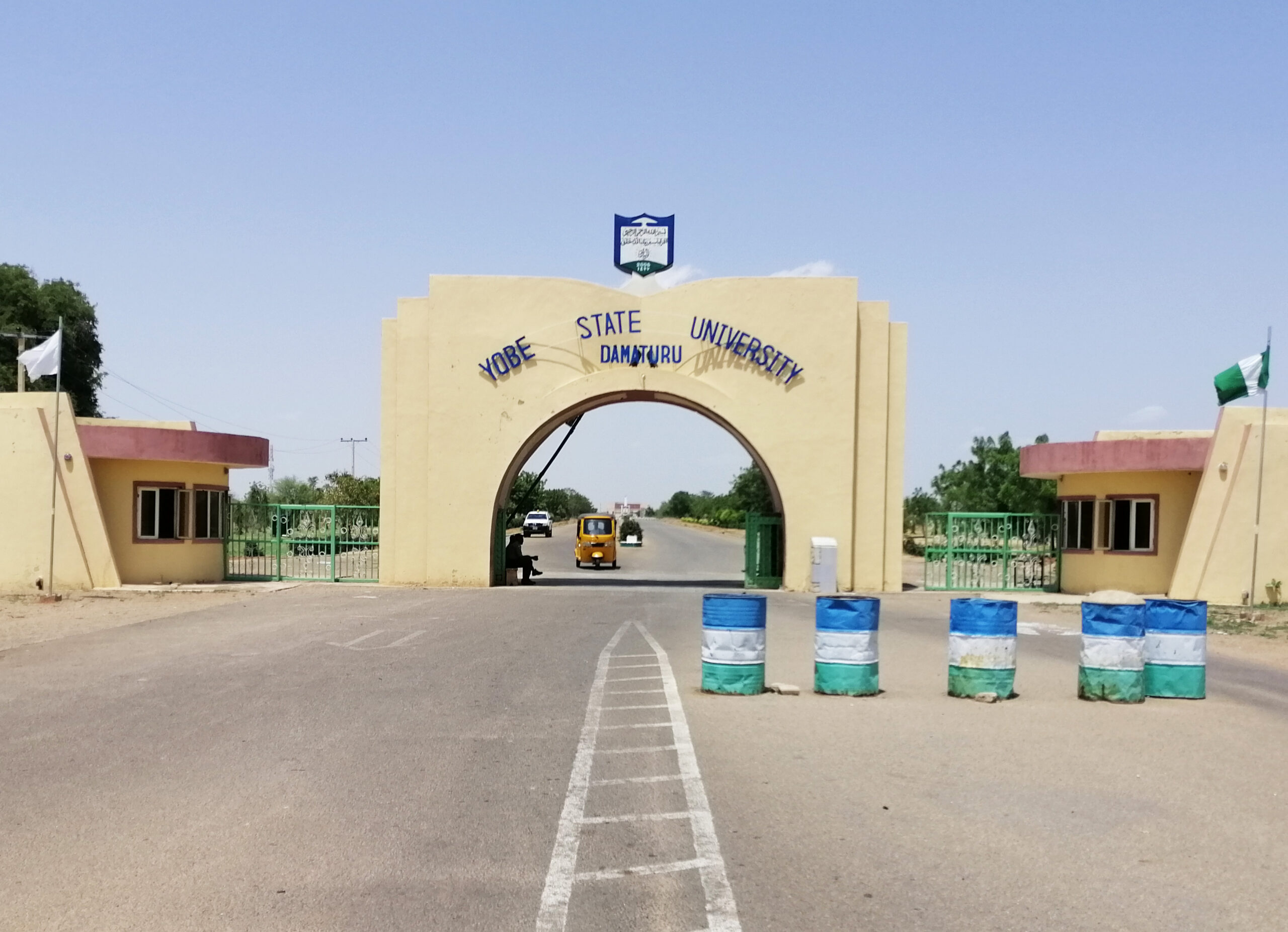
Firm Statistics
Story Of The Firm
Terrorism In Nigeria
Community Impact
Current Threats
Yobe State University Security is located in Yobe, Nigeria.
The security department consists of 140 guards responsible for patrolling about 40 to 60 yards each.
The security department has a variety of male and female staff ranging in age from 17 to 68.
Due to economic hardship, only five guards have full security kits which include defensive and offensive weapons, security tools, and a uniform.
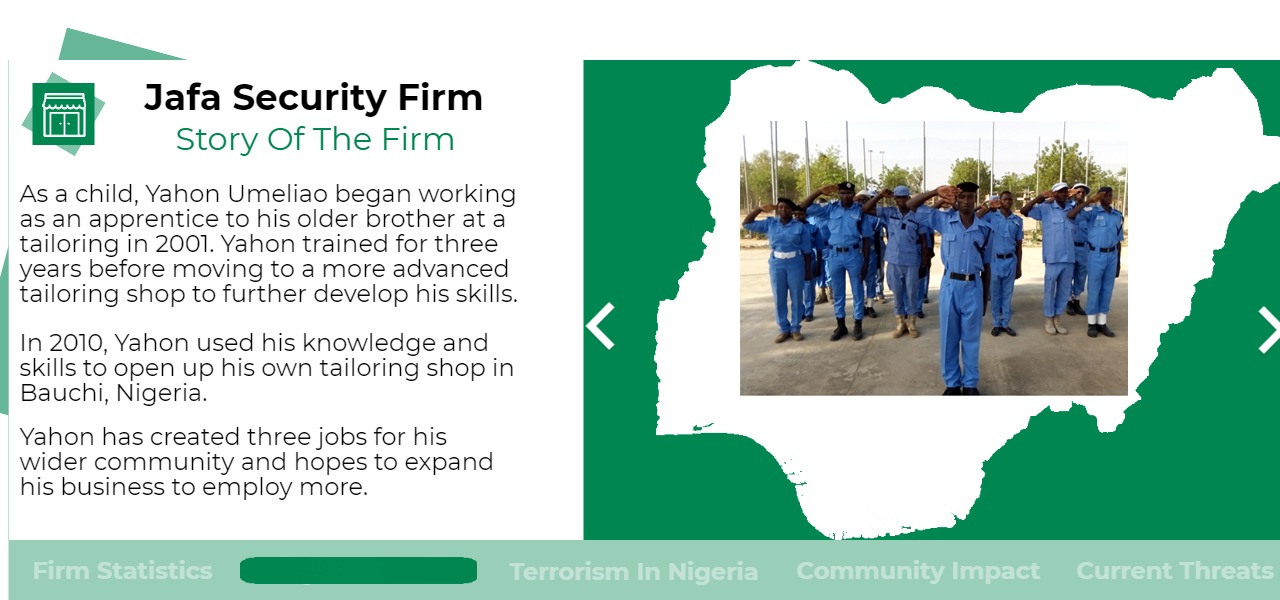

Boko Haram and education are intrinsically linked. In the local Hausa dialect, “Boko Haram” means “Western education is forbidden”.
Poverty and resentment of Western culture has driven many students, clerics, and unemployed professionals to join Boko Haram’s cause.
As a government-sponsored entity, Yobe State University is a prime target for terror attacks. The school can be unsafe for students and employees, especially those who live on-site.
The university’s security department has become essential for ensuring the safety of the people that call Yobe State University home.
Story of the Firm

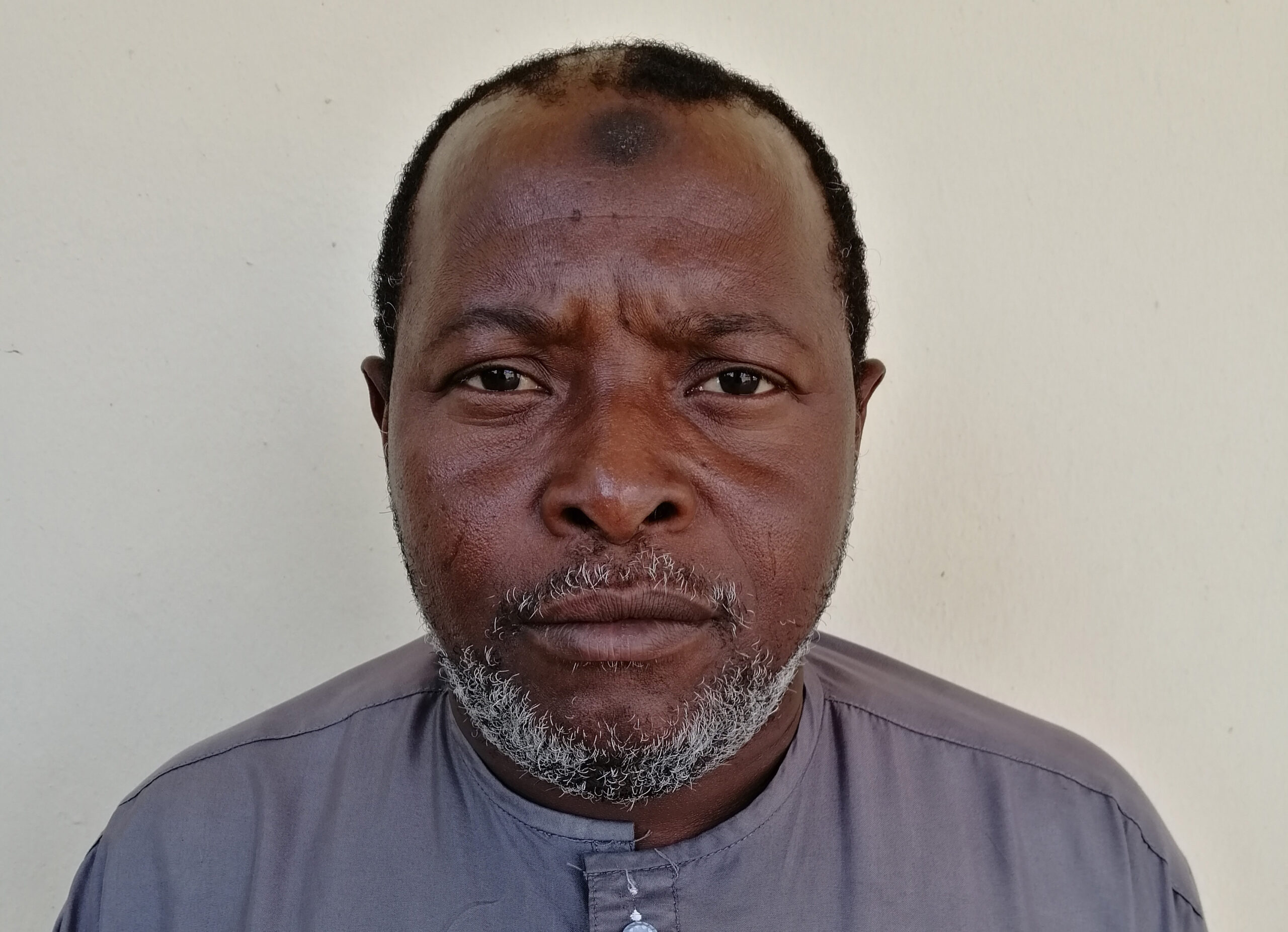
Musa, A Yobe State University Security Department Officer


Boko Haram is a militant terrorist group that promotes anti-western education ideals and has been based in Northeastern Nigeria since 2002.
The terrorist organization’s main priority is establishing, spreading, and maintaining an Islamic State to oppose the Western values that threaten their ideology.
Though they have been active for nearly twenty years, they have gained most of their notoriety within this last decade through demonstrating their ability to carry out major acts of terrorism.
Most notably, in 2014, Boko Haram kidnapped 276 Chibok school girls. Over 100 girls remain missing.
Terrorism in Nigeria




Yobe State University is the heart of Yobe. The university encompasses a large area of land and serves upwards of 10,000 students.
Due to Covid-19, the university has lost the income it generates through in-person sessions and has been forced to reduce its security department.
The fiscal reduction of the department leaves the school vulnerable to Boko Haram and affects the livelihood of hundreds of people.
Along with this financial hardship, the university has faced consistent problems of understaffing, a lack of security tools, and comprehensive training on counterterrorism.
Community Impact

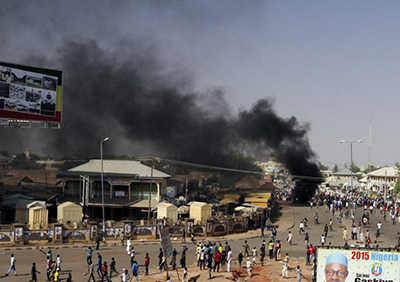


Within the last few years, there has been a spike in insurgent activity in Yobe and Borno.
In June of 2021, Boko Haram attacked Gubijba Town, which is just 20 kilometers away from Yobe State University.
In addition to this, the security department has to handle disgruntled ex-employees and students who are returning to cause damage as revenge.
Boko Haram is taking advantage of this phenomenon and disguising themselves as students to gain entrance to the university. A suspect was arrested for this very reason in April of 2021.
Current Threats




Rusty Capps is a retired FBI Supervisory Special Agent. He is at the very forefront of counterterrorism, counterintelligence, and security awareness education.
He is currently president of Counterterrorism/Counterintelligence (CT/CI) Training Partners LLC, as well as an accomplished educator with experience teaching at the FBI Academy at Quantico, Virginia. He was able to provide my team with invaluable insight into the field of national security and intelligence.
His other notable experience includes his appointment as the first national manager of the Development of Espionage and Counterintelligence Awareness (DECA) program in 1990.
In 1994, he was assigned to manage the private sector outreach program at the newly created National Counterintelligence Center (NACIC), which was staffed with counterintelligence experts from across the US Intelligence Community.


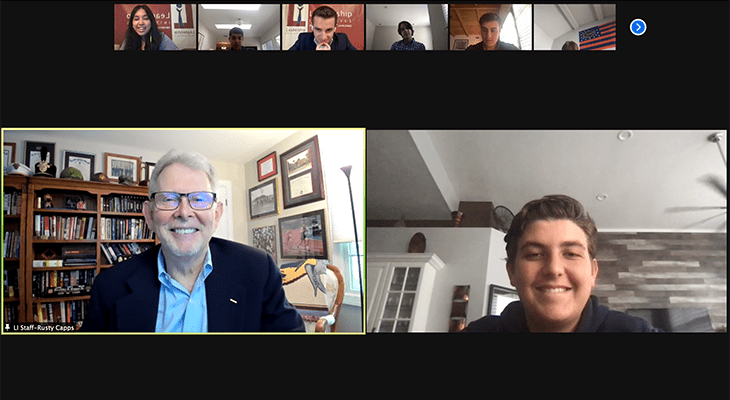
Former Special Agent Rusty Capps
Meeting The Security Firm
Counterintelligence Panel
Operational Security Training
Internship Highlights




CLICK BELOW TO LEARN MORE
Former Special Agent Rusty Capps


Our team began the solution-development process by expressing our interest and motivation to support the Yobe State University Security Department through a Zoom meeting with its employees.
Through this call, we learned more about the daily life in Yobe and the shadow terrorism casts on the lives of its citizens.
By evaluating and discussing the problems that Yobe State University faces, our team was able to outline the external and internal forces that impact our security partner through a SWOT analysis. The acronym stands for “strengths, weaknesses, opportunities, and threats.”
During our brainstorming, the on-staff project coordinators and national security experts helped facilitate the process and ensured that we were asking relevant questions.
Meeting The Security Firm
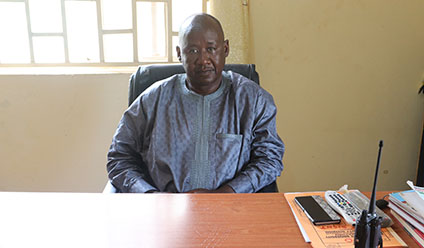
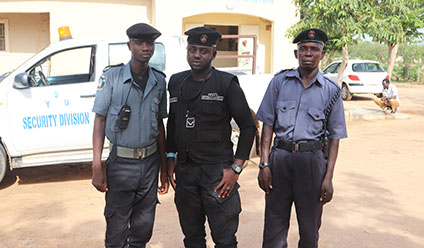


Our team was able to speak with a counterintelligence panel composed of Thomas Mauriello, Cindy Capps, Maura Harty, and Matt Pierce.
Respectively, these distinguished guests include a former U.S. Department of Defense Special Agent, a former FBI agent, a U.S. Department of State Ambassador, and the Director of the Washington Passport Agency.
Through this panel, we gained a basic understanding of the counterintelligence community, learned about each panelist's impact on the safety of the nation, and received advice and instruction about establishing a career in counterintelligence.
In addition to this information, we had the opportunity to ask these speakers questions meant to further increase our understanding of the counterintelligence community.
Counterintelligence Panel
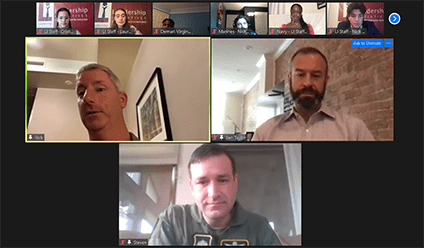
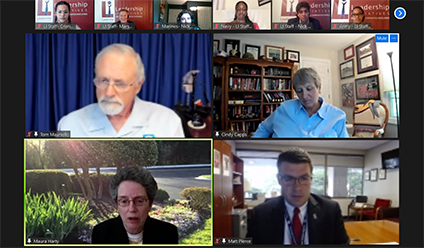


Operations Security or OPSEC is the identification and protection of information that would allow a competitor or threat to interfere with our plans, capabilities, or activities.
In order to properly assist our security partner, our team was trained in this risk management process by the U.S. Air Force’s Chief of the Interagency OPSEC support staff. OPSEC was originally implemented by the military and has gained traction in the private sector as well.
The first step of this process is to identify data that requires protection, while the second step is to discern potential threats. Once these items have been identified, the environment must be analyzed for security holes, as well as the risks associated with these vulnerabilities.
The final and most important process is establishing and implementing countermeasures to eliminate and diminish potential threats.
Operational Security Training
